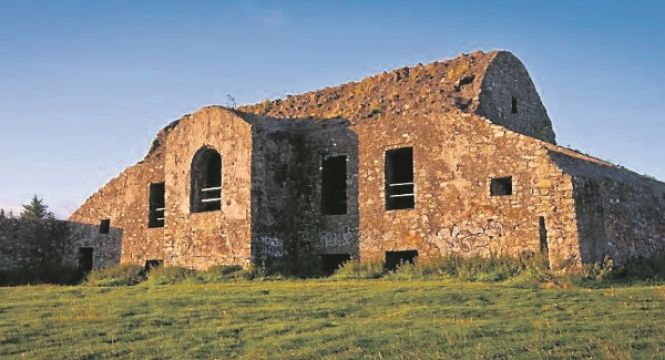A local residents' group has failed to get a High Court order overturning permission for a €15 million visitor centre at Dublin’s Hell Fire club.
However, Mr Justice Richard Humphreys said he is referring important issues of EU law which arose in the case to the Court of Justice of the EU for determination.
The issues include whether Irish regulations of 2011 implementing the European Birds and Habitats Directives are invalid by reference to EU law in relation to projects which may be subject to a derogation application after they have secured a planning consent.
Aarhus Convention
The Hellfire Massy Residents Association (HMRA) claims the regulations do not respect the Aarhus Convention providing for public participation in environmental matters because they do not provide for a system of public consultation concerning the grant of a derogation licence.
In proceedings against An Bord Pleanála and the State, HMRA challenged the board's permission to South Dublin County Council to develop a visitor centre in the Dublin mountains at the Massy’s Wood estate and Montpelier Hill.
The site includes the Hell Fire club, a national monument built around 1725.
The project is being developed in co-operation with Coillte and the Dublin Mountains Partnership.
The HMRA claimed the development will function as a visitor’s hub for the Dublin and Wicklow mountains and will alter the type, intensity, mix and balance of visitors to Montpelier Hill, Natura 2000 sites and Massy’s wood. It claimed this effect had not been assessed and the board failed to consider adequately or at all the impacts on, inter alia, natural habitats, bats and otters.
Non-compliance claims
In his judgment on Friday, Mr Justice Humphreys said he had previously decided the applicant had failed to establish the grant of permission was invalid.
His reasons included the HMRA had failed to establish the figures for future visitor numbers were so flawed the board acted unlawfully in taking them into account.
He dismissed claims of non-compliance with section 175 of the Planning and Development Act, which requires further information relating to a planning application by a local authority be published via newspaper notice.
The group claimed, because Ballyroan library, where plans were meant to be on display, was closed for nine days due to Covid-19, there was a breach of section 175 regarding public notice.
That closure did not inhibit the group from making a submission and it had in fact done so, the judge said.
'Opportunistic attempt'
Even if there was some “technical breach”, which he did not accept, he would refuse relief under the court’s discretion. It would bring the law into disrepute to uphold “such an opportunistic attempt” to invalidate a planning permission because a library was closed due to the Covid-19 emergency, he said. Such submission “trivilalised” the impact of a pandemic, which has killed more than 3.9 million people worldwide to date.
The group, he further ruled, lacked the necessary legal standing to challenge the validity of section 175 because the section did not interfere with its rights as it had been able to make a submission on the planning application.
He ruled the group has legal standing to challenge the validity of the 2011 regulations concerning the seekign of derogations after permission is granted (post-consent derogation).

This was because it is endeavouring, in that challenge, to deal with environmental concerns it has raised in its own capacity as an objector, he said.
Bat fauna
The group argued there is no system of strict protection for, inter alia, bat fauna because the 2011 regulations provide the council, once it gets planning consent, can decide whether or not to seek a derogation licence is respect of any identified disturbance or deterioration to breeding sites, foraging or resting places. The regulations are invalid because they do not provide for a system of public consultation concerning the grant of a derogation licence, it argued.
The judge was satisfied those issues raised a number of EU law points requiring a reference to the CJEU. Because the 2011 Regulations allow a derogation to be sought for a project after it has got a development consent following an appropriate assessment, the points include whether there is a requirement for a public participation procedure in conformity with the Aarhus Convention.
The matter has been adjourned for six weeks to allow the sides consider the judgment.







